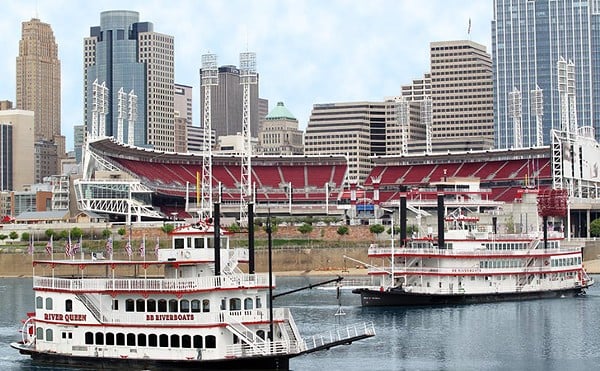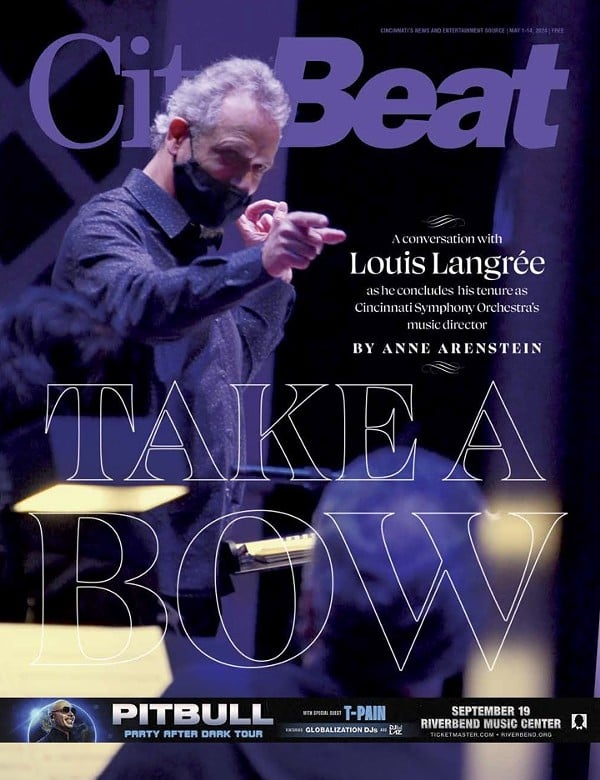|
Paul Thomas Anderson's flawed yet fascinating There Will Be Blood is an epic, supremely strange period piece that evokes a host of current cultural issues: our obsession with oil, the role of religion in society, the perils of unchecked capitalism, family values. And it features an immersive, sometimes scary tour-de-force performance from Daniel Day-Lewis as an oil prospector who seethes with ambiguously sourced, barely contained intensity.
Like the rest of Anderson's now sporadic output — There Will Be Blood is just his second feature since 1999's Magnolia — this is a fearlessly ambitious undertaking borne by an obsessive vision. Anderson doesn't just make films; he seems consumed by them.
In an age of largely formulaic American movies, there's a temptation to overstate Anderson's ample talents. Yet few filmmakers endeavor to make movies on the scale and complexity — both in a technical and emotional sense — of this self-taught 37-year-old Los Angeles native. (Todd Haynes and David Fincher, both of whom also delivered willfully complex films in 2007, are recent exceptions.)
There Will Be Blood is loosely based on Upton Sinclair´s muckraking 1927 novel, Oil. Anderson pares down Sinclair's more expansive narrative to focus on Daniel Plainview (Day-Lewis), whose puzzling nature belies his straightforward name.
The film opens with a wordless, 20-minute preamble of sorts that makes it clear we're dealing with no ordinary protagonist — and that we're in no ordinary movie.
It's 1898, and Plainview is alone amidst the dusty, unforgiving landscape of West Texas (ironically, the same stretch of Bushian terrain where the Coen brothers shot No Country for Old Men).
He climbs down a dark, ominously ramshackle mine shaft in search of silver. A rung breaks, and Plainview falls, shattering his leg in the process. Dirty, disheveled and in enormous pain, he immediately rolls over to check the soil for silver. Yes, this is one single-mindedly obsessive man.
It's not long — 1902 to be exact — before Plainview turns his attention to oil, and not long before Anderson gives us another virtuoso sequence involving this wildcatter's first oil strike that ends with Plainview wild-eyed and filthy, cradling a baby who somehow sits within feet of the black gusher that rains down on him and his small crew. It's an enormously spooky yet enthralling visage, one that concludes There Will Be Blood's rapturous first section — an opening salvo that Anderson has trouble living up to over the next two hours.
The baby turns out to be Plainview´s son, H.W. (Dillon Freasier). (His mother apparently died during childbirth.) Now 10 years old, H.W. appears to be an improbable business partner with his father, who has had considerable success as an oilman during the intervening period. The narrative proper begins as the pair receives an unexpected nighttime visit from a mysterious, pasty-faced young man, Paul Sunday (Paul Dano), who for a sum of money tells the Plainviews that he knows a place where oil literally saturates the ground.
Obviously piqued by the claim, father and son travel to a desolate California desert town where they encounter Paul's brother, Eli (also Dano), a righteous and charismatic preacher who lives with his large family (Paul is notably absent) in a small, rickety home.
Plainview offers to buy their lot, which Eli's father, a simple man, readily accepts. Intent on procuring the rest of the area's fertile, oil-laden land, Plainview sets up a meeting with the town's other inhabitants, modest people who are immediately enraptured by this newcomer's promise to bring modernity to their barren environs.
Clad in a wide-brimmed hat, his son standing at his side, Day-Lewis finally delivers Plainview's first extended batch of dialogue in a speech to the townspeople, which (as many critics have already pointed out) seems to channel the forceful, slightly sinister vocal intonations of Chinatown's Noah Cross (John Huston), himself a man with grand ambitions.
I wouldn't be surprised if Anderson — who has lifted liberally from the films of Robert Altman and Martin Scorsese in the past — encouraged Day-Lewis to use Huston's commanding character as a jumping off point, just another instance of the director's lovingly symbiotic relationship with film history. (Likewise, longtime Anderson cinematographer Robert Elswit's expressive, mood-setting visuals recall everything from Erich von Stroheim's Greed to Altman's McCabe and Mrs. Miller.)
But a jumping off point is all it is. Day-Lewis' and Anderson's towering creation is one of the singular figures in recent cinema, a man so perplexingly, maddeningly ambiguous that only when his unknown half-brother (Kevin O'Connor) mysteriously materializes does Plainview give us a glimpse into his bleak worldview. "I want no one else to succeed," he says, Day-Lewis clearly relishing a rare chance to reveal his character's vague motivations. "I hate most people. ... I've worked people over and gotten what I want from them, and it makes me sick. Because I see that all people are lazy. They're easy to take. I want to make enough money that I can move far away from everyone."
This small window into Plainview's dark soul eventually comes to fruition. It also describes his relationship with nearly everyone he encounters, including his son — whom we find out is little more than a prop in his quest for power — his rivals in the oil business, his newfound brother and, most notably, Eli, who proves to be the only man who even comes close to matching wits (and wills) with Plainview.
I won't reveal There Will Be Blood's already notorious finale, which, set many years after the film's main narrative thrust, seems improbably disjointed in tone from its elegiac first two hours. Yet there's no denying that this is a movie-going experience like no other, in which a fearless director and performer combine to create a vision of America's past that looks a lot like its present. Grade: A-
Opens Jan. 18. Check out theaters and show times, see the film's trailer and find nearby bars and restaurants here.





